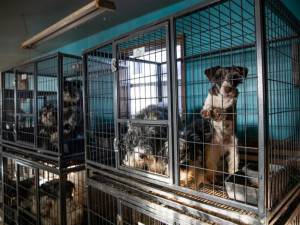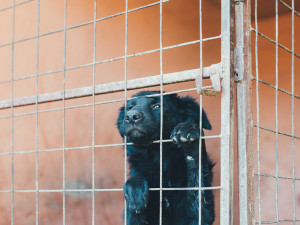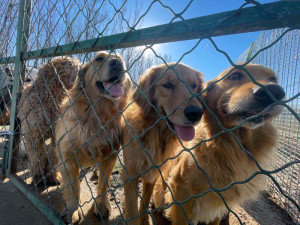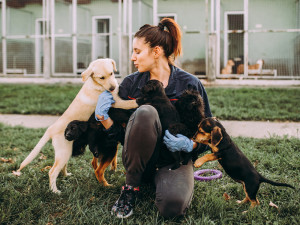The HSUS’s “Horrible Hundred” Exposes 100 Known Puppy Mills in the United States
The annual report raises awareness for animal cruelty and this inhumane practice.
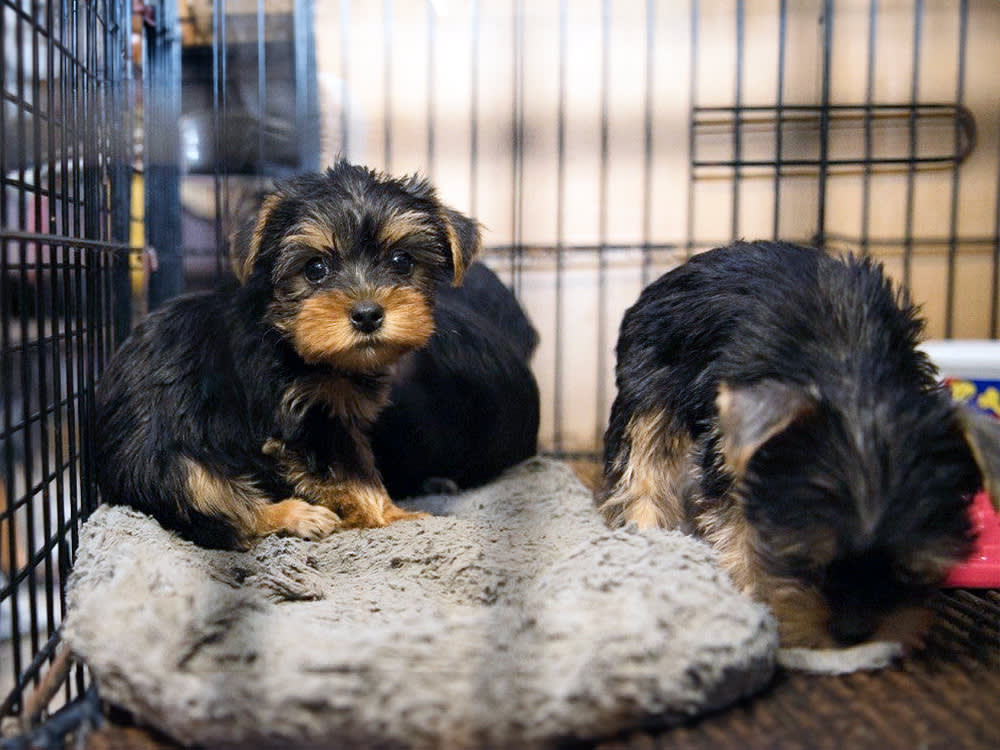
share article
The Humane Society of the United States (HSUS) has long been leading the fight against puppy mills — cramped, poorly sanitized facilities where dogs are bred for profit. There are approximately 10,000 active puppy millsopens in a new tab in the United States; 2.6 million puppies born in puppy mills are sold each year.
By supporting legislation, conducting undercover investigations, and leading on-the-ground rescue missions, the HSUS is constantly working to end cruel breeding practices. They recently released their annual “The Horrible Hundred”opens in a new tab report, which exposes 100 known puppy mills across the United States.
What is The Horrible Hundred?
The Horrible Hundred is far from a comprehensive list of puppy mills in the U.S. “It is not a list of all puppy mills, nor is it a list of the worst puppy mills in the country, but rather a list of dog breeders to avoid,” the HSUS writesopens in a new tab. They publish the report “not as a comprehensive inventory, but as an effort to inform the public about common, recurring problems at puppy mills.”
The HSUS’s Horrible Hundred report comes out once each year; in the past, its exposure of puppy mills has led to positive progress. After the publication of the 2023 report, several dealers were charged with animal cruelty and neglect, and some voluntarily closed down their operations.
One mill that voluntarily closed after being featured in The Horrible Hundred relinquished almost 130 dogs to shelters. Other breeders found themselves facing added pressure from local authorities and relinquished their licenses.
This year’s The Horrible Hundred report
This year, for the 12th year in a row, Missouri had the most dealers featured in The Horrible Hundred — 23 Missouri-based puppy mills made the list. Ohio, Iowa, Wisconsin, and New York followed as the states with the most breeders featured. The HSUS notes that certain states are underrepresented in the report because of a lack of transparency; some, including Indiana and Oklahoma, claimed to have no violations or did not respond to the HSUS’s requests for public records in a timely manner.
Nine of the puppy mills in the report sold dogs to Petland, a notorious pet storeopens in a new tab that sells puppies. In a recent undercover investigation of Petland, the HSUS witnessed pups kept in horrible conditions at the pet store. Some of the dogs were extremely sick with illness or congenital defects.
“Instead of being treated for these conditions or placed in homes where they could receive special care, some of these dogs were instead sent back to the puppy mills where they were born,” the HSUS reports.
Sixty out of 100 of the breeders are licensed by the United States Department of Agriculture (USDA) — and despite being cited by state inspectors for animal cruelty, some of the breeders had not been given a citation by the USDA for any violations. This pattern proves “the need for stronger laws and enforcement effort at the federal level, and better collaboration between local, state and federal authorities,” the HSUS writes.
Shockingly, 20 of the breeders were found to be linked to the American Kennel Club (AKC). “Several of them advertise on the AKC’s Marketplace website and many register puppies with the AKC,” the HSUS reportsopens in a new tab. “One of these Horrible Hundred breeders has even been identified by AKC as a ‘Breeder of Merit.’”
What you can do to help
First and foremost, the HSUS recommends that anyone adding a pup to their family is careful about where they find the dog and who they give their money to. Optimally, they recommend adopting a dog from a shelter rather than purchasing a dog from a breeder.
If you do choose to buy a dog from a breeder (though breed-specific rescuesopens in a new tab are always an option) the HSUS recommends visiting a small, responsible breeder who is willing and able to show you the conditions where the puppy is born. The HSUS created a checklistopens in a new tab of signs of a responsible breeder that you can consult throughout the process.
“Affiliation with the AKC or a sign off from the USDA should not be seen as a stamp of approval signaling the humane commitment of the breeders involved,” the organization writes.
The HSUS currently supports two introduced federal bills: the Puppy Protection Act (PPA) and the Better Collaboration, Accountability, and Enforcement opens in a new tab(Better CARE) for Animals Act. You can urge your representatives to support legislation that increases accountability for animal cruelty.
If you know of a suspected puppy mill or any animal cruelty, the HSUS recommends making a report to a local humane organization or local animal control agency. If you’ve purchased a dog who you suspect came from a puppy mill, you can make a complaint on the HSUS websiteopens in a new tab. You can also donate to the HSUS to help their continued rescue efforts.
References:

Sio Hornbuckle
Sio Hornbuckle is a writer living in New York City with their cat, Toni Collette.
Related articles
![A sad dog in a cage with its head and paws sticking out.]() opens in a new tab
opens in a new tabYay! New York Shut Down the Puppy Mill Pipeline
The state passed a bill that will end the inhumane breeding and transport process.
![A woman with a dog on her lap sitting at a desk with a laptop.]() opens in a new tab
opens in a new tabWhat Happens After You Sign a Petition Anyway?
Three animal rights attorneys on what it takes to ban puppy mills and other ways to get involved in animal advocacy.
![four dogs from No Dogs Left Behind at a fence]() opens in a new tab
opens in a new tabNo Dogs Left Behind Faces Harsh Realities to Save the Pups Who Need It Most
The rescue organization’s founder Jeff Berri needs your help to save dogs from horrific conditions and giving them a much-deserved new start.
![Girl sitting on couch hugging her playful dog with the window open to outside]() opens in a new tab
opens in a new tab7 Myths About Rescue Animals—Debunked
For starters: No, they’re not all traumatized and yes, you can find a purebred puppy at a shelter.
![Man from Soi Dog Foundation holding 3 puppies.]() opens in a new tab
opens in a new tab27 Dogs Were Flown to the US After Being Rescued From a South Korean Dog Meat Farm
The dogs will be available for adoption soon.
![Woman holding dogs at an animal shelter]() opens in a new tab
opens in a new tab10 Ways Animal Shelters Are Upping Their Game
New trends we can totally get behind.
